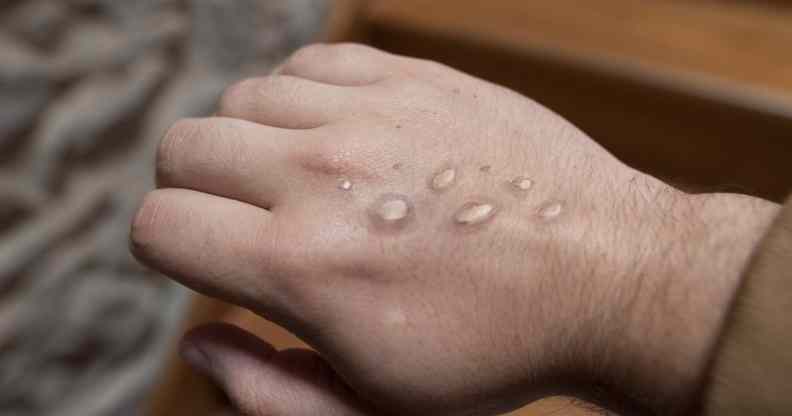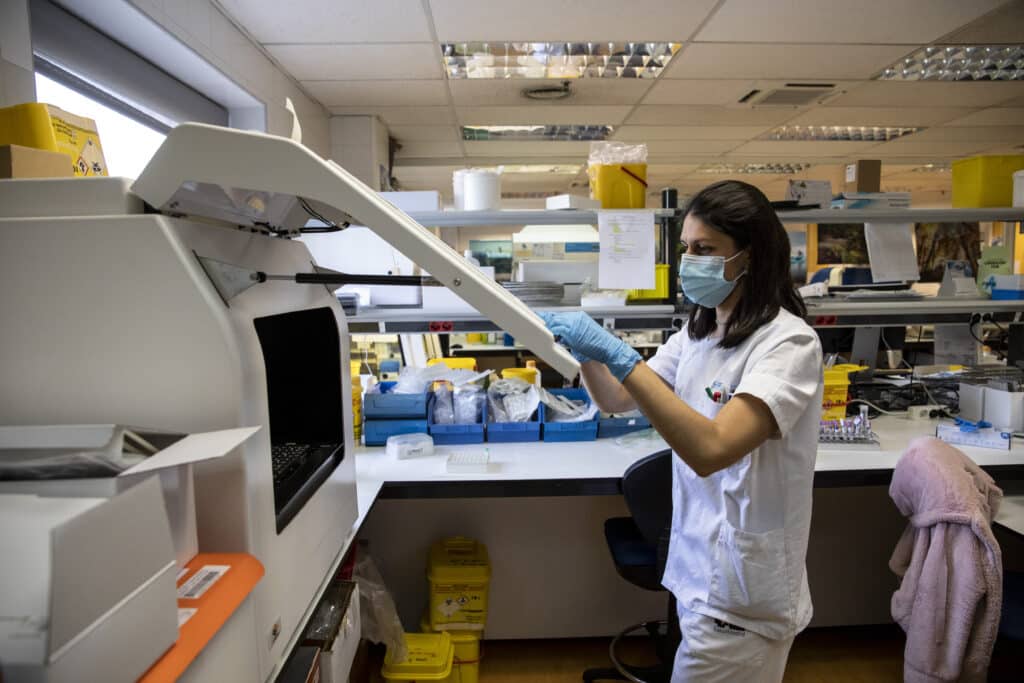First monkeypox deaths since global outbreak began confirmed in Brazil and Spain

Monkeypox lesions. (MarioGuti/Getty Images)
Monkeypox lesions. (MarioGuti/Getty Images)
The first known deaths of monkeypox since the global outbreak began in May have been recorded in Brazil and Spain.
A 41-year-old man in Brazil became the first fatality from the virus outside of Africa when the country’s health ministry confirmed his death on Friday (29 July).
The Ministry of Health said the man also suffered from lymphoma and a weakened immune system, with multiple diseases worsening his condition.
He had been hospitalised in the southeastern city of Belo Horizonte and passed away from septic shock on Thursday after being taken to an intensive care unit.
Health officials in Spain also announced two deaths – believed to be the first in Europe. The first patient in the north-eastern Valencia region suffered from encephalitis, an inflammation of the brain associated with monkeypox, local media reported.
The second monkeypox-related death came only a day after on Saturday, the Ministry of Health said.
According to the latest report from the disease monitoring agency National Epidemiological Surveillance Network, better known as RENAVE, officials have logged at least 4,298 known monkeypox cases in Spain. Of the 3,750 for whom officials have information on, 3.2 per cent have been hospitalised.

Spain has launched a vaccination scheme as monkeypox cases well in the thousands. (Pablo Blazquez Dominguez/Getty Images)
“Among the 3,750 [monkeypox] patients … 120 have been hospitalised and two have died,” the ministry said in a report. Officials did not provide any further details about the victims, other than specifying they were young men.
Though scientists believe monkeypox may have been silently spreading for potentially years, a cluster of cases of the once rare disease was first found in May in Britain.
Since then, the virus has cropped up across Europe, the US and Asia – mainly in countries it was once rarely seen in. It has infected more than 22,485 people, according to the US Centers for Disease Control and Prevention.
Of them, 22,141 are across the 72 countries that have historically not reported the virus.
The organisation, for the second time in two years, took the step to declare a global health emergency in July amid the alarming spread of monkeypox.
Monkeypox is a virus similar to smallpox, but symptoms are less severe. People sickened with it tend to experience fever, body aches and swollen lymph nodes before a rash begins to form. The rash first starts with flat red marks that swell with puss, with lesions seen on the genitals, anus and mouth.
The virus spreads from person to person through close physical contact with infectious lesions and pustules as well as through respiratory droplets when an infected person sneezes or coughs.
More than 99 per cent of monkeypox cases so far in the US have been among men who have sex with men, the Centre of Preparedness and Response said in a 25 July report. The trend has galvanised the LGBTQ+ community and scientists into action, stressing that monkeypox is not a “gay disease” and can be transmitted to anyone, regardless of sexuality.

